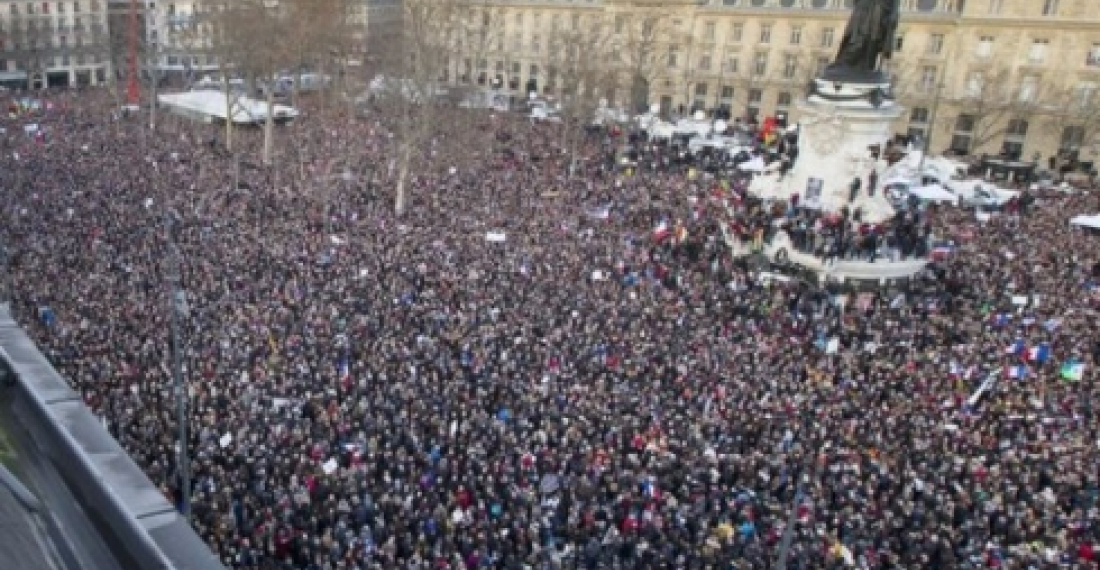Nearly two million people marched in the streets of Paris on Sunday in an expression of grief and resolve following three days of terrorist violence perpetrated by radical Islamist militants.
In all, more than three million people have taken part in unity marches across France after 17 people died during three days of deadly attacks in Paris.
More than 40 world leaders joined the start of the Paris march, linking arms in an act of solidarity.
The marchers wanted to demonstrate unity after the attacks on satirical magazine Charlie Hebdo, police officers, and a kosher supermarket.
The French government said the rally turnout was the highest on record.
million people marched in the streets of Paris on Sunday in an expression of grief and resolve following three days of terrorist violence perpetrated by radical Islamist militants.
source: commonspace.eu with agencies.
photo: The march in Paris on 11 January was described as the largest popular rally on record attracting nearly two million people.







